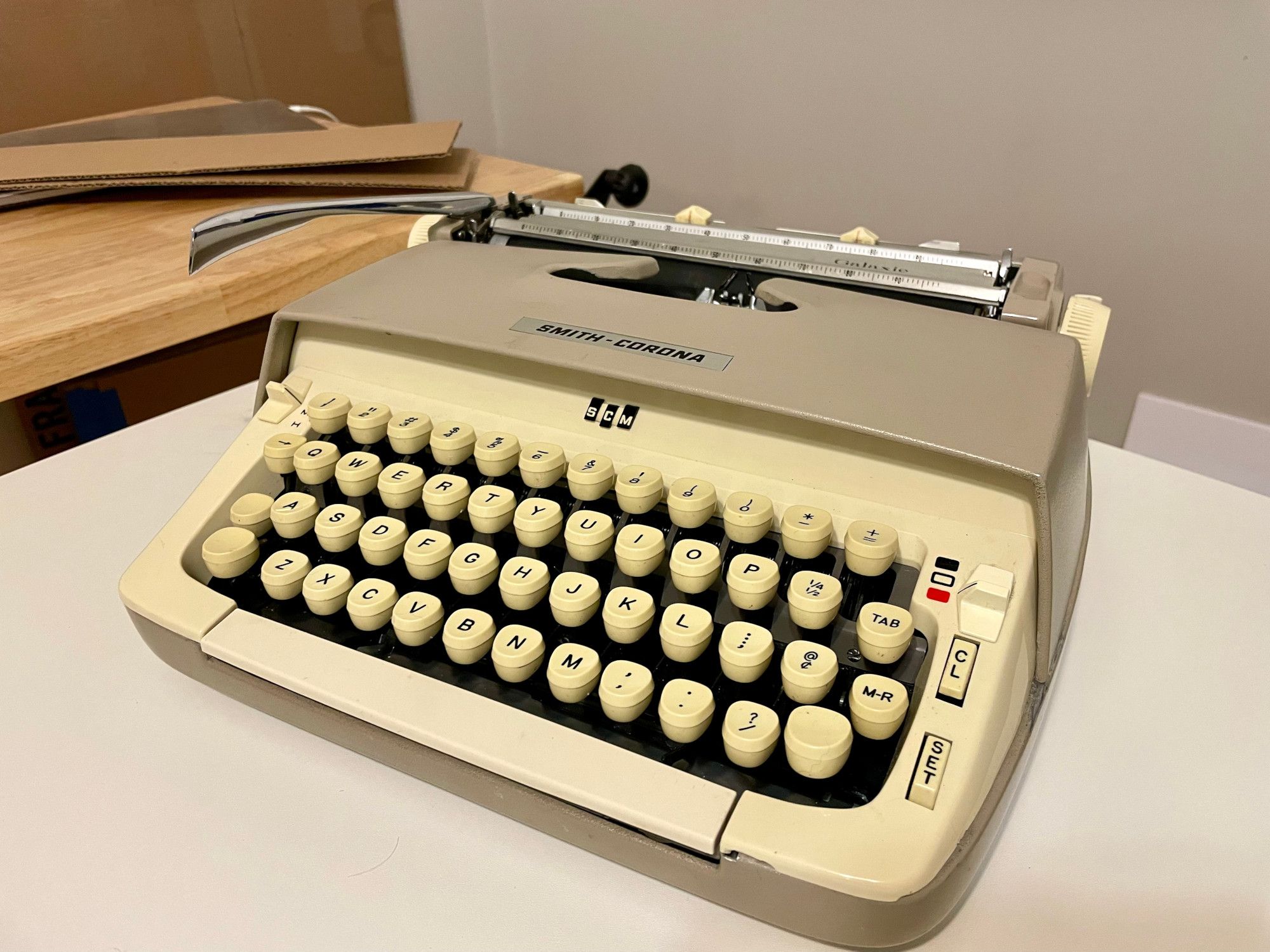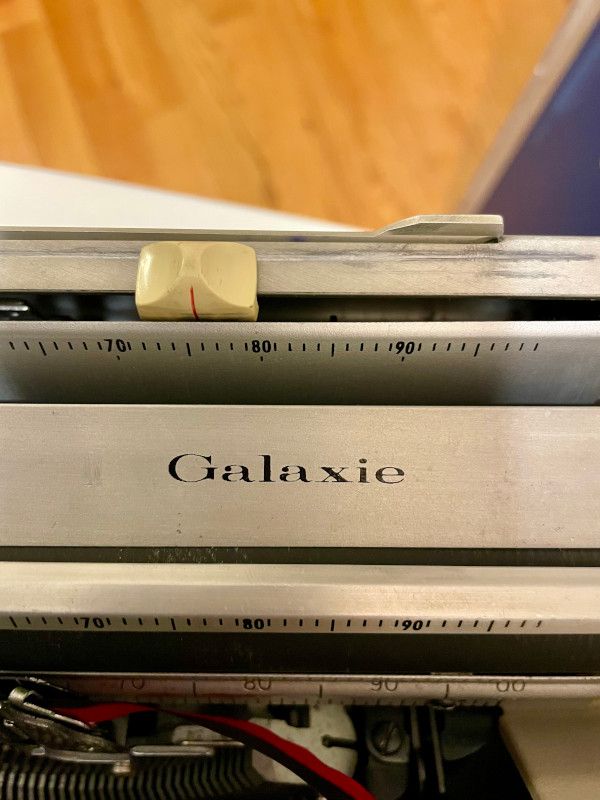My Brand-New Old Typewriter
I recently bought a Smith-Corona Galaxie. It is a fully manual portable typewriter manufactured in 1960. It's an impressive machine. Typewriters have always been fascinating to me. They are tools that have existed totally outside of their original context for so long they've become enigmatic. I've only known them as wholly obsolete objects that had no place in the newly digital world I grew up in. They existed to me almost entirely as set-dressing in old film and tv: I had never seen one in person.

They had been such a constant in the lives of so many for so long that their replacement by computers in the 80s and 90s and their seeming absence struck me as baffling. I couldn't really figure out how such a successful piece of technology became obsolete with such finality. Were they really that obsolete after all? I still can't really answer that question, but there are a not-insignificant amount of enthusiasts who still love using these hulking machines to write.
I decided to buy one of my own after stumbling across the YouTube channel of Joe Van Cleave. Specifically, I saw a video of Joe's where they used a typewriter to write out a message onto an adhesive shipping label, then attach it to a postcard in the space where one would normally put a hand-written message. This was immediately very attractive to me. Lately I had been regreting losing touch with some people in my life and the idea of snail mailing occasionally to keep in touch was something that was rattling around the back of my mind for a long time. Sending a nicely typed postcard in the manner Joe did in his video seemed perfect to me. Partially - I am only slightly ashamed to admit - because I have atrocious handwriting, but mostly because it just seemed really fun. The machine Jow used was super big and made a huge racket in their video but they also ended up with a great final product.
Could you do the same thing with a computer and a printer? Yes, of course. You can do almost anything with a computer, but I spend my entire professional life in front of computers and thinking about talking to computers and I'm tired of them. The experience of writing someone a message on a manual typewriter seemed like an almost romantic alternative to using a laptop. I did a lot of research and decided on a Smith-Corona Galaxie. It seemed to be a well regarded portable machine by several enthusiasts, so I decided to buy one. When it arrived I was a little worried I had made a mistake. It sort of smelled like a wet basement, which is what I half-expected from a used (but serviced!) typewriter from something like sixty years ago. I rolled in a sheet of test paper and banged out some nonsense and I knew right when I heard the end-of-line bell and hit the carriage return lever that this thing was really special.

What I've found so far in writing on a typewriter is that the experience is similar to writing with a pen and paper. It is significantly slower, it requires actual honest-to-goodness editing, and patience. You'll make mistakes, and you'll either need to fix them, start over, or furiously backspace to strike them through and continue on. I am enjoying it. It is immensely tactile. The keys on my machine take a not-insignificant amount of force in order for consistent lettering to be trasfered to the page. Hearing the bell sound when you near the end of a line, hitting the carriage return lever, and then sliding the entire carriage back to the beginning of a line is just thrilling.
I admit that the satisfying feelings I get from typing on a fully mechanical machine could be in-part due to some accidental nostalgia I've accrued through some process of cultural osmosis of film and television. I'd concede that the development of a serious computer allergy after spending way too much time in front of them also has something to do with how much I'm enjoying this contraption as well. I have to say though, the more letters and postcards I send to friends on my Galaxie the more I enjoy it. It is immensely satisfying to roll in a piece of paper and literally bang out several paragraphs while enjoying all the physical feedback. It isn't an experience you can get digitally. Like any mechanical thing, there will be issues eventually, but for now I'm really happy with it.
I'll try to get a scan of the manual the machine came with online once I am able to do so. For now: enjoy the carriage-return video below.
- Previous: A Prelude
- Next: Simple Advice for Building Habits